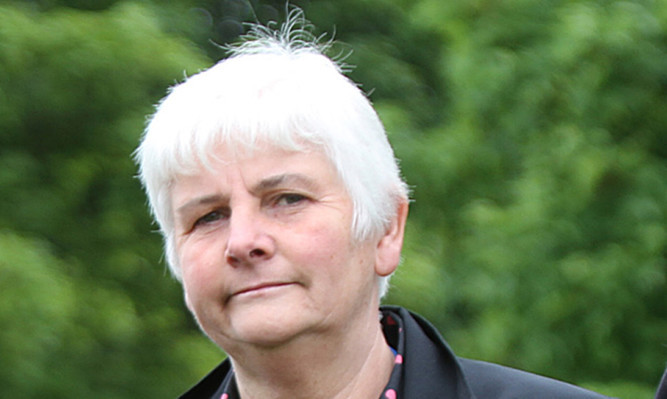Angus residents are throwing away food which would outweigh more than 250 double decker buses every year.
Despite the success of new kerbside services which have seen a rise in recycling to the point where households across the district are now recycling more than half their household waste and cut non re-usable rubbish by 40%, around 4,000 tonnes of food is still being thrown out.
The equivalent of 267 double decker buses, the food waste is taken to an anaerobic digestion plant where it is used to generate electricity and produce a digestate, which can be spread on the land as a fertiliser substitute.
The food recycling figure could be even higher after research revealed that despite receiving a separate food collection, leftovers still make up around 30% of the content of general household waste bins in Angus.
The statistic has led to a fresh plea for people to care more about how and what they recycle after leading council figures gained a first-hand insight into the work carried out by the army of Angus bin collectors who gather waste from around 55,000 properties.
Forfar councillors Jeanette Gaul and Ian McLaren went “on the rounds” with waste teams.
Councillor Gaul said: “It really is an invaluable service and one that, as service users, we perhaps take for granted.
“Some people might perceive that, in this age of dividing out our rubbish and recycling that the hard work is done by the time the wheelie bin is hooked to the back of the lorry, but that’s not the case.
“They work very effectively as a team in all weathers. As residents we can help them by making sure the right bins are out on the right day at the right time. Please don’t leave black bags at the side of or on top of your bins.”
The new kerbside collection arrangements were rolled out across Angus just over a year ago to help the drive towards the national target of recycling 60% of all household waste by 2020.
The authority said overall the public has been extremely supportive and adapted well to the new scheme, leading to a reduction of around 40% in the amount of non-recyclable waste collected. The cost of landfilling waste has increased significantly in recent years and the authority now had to pay £82.60 per tonne in landfill tax alone.
Mr McLaren said putting waste in the correct bin was crucial.
“Checks earlier this year found that almost 50% of what went in the purple bin (for non-recyclable waste), could have gone in the grey bin (dry recyclables) or the brown food caddy,” he said.
“There is still room for improvement when it comes to contamination in other words waste being put in the wrong bin.
All we would ask is for people to look at what they are recycling and where they are putting it.
“It is an excellent service and by getting it right you can make a difference to the environment and the cost of this service.”
